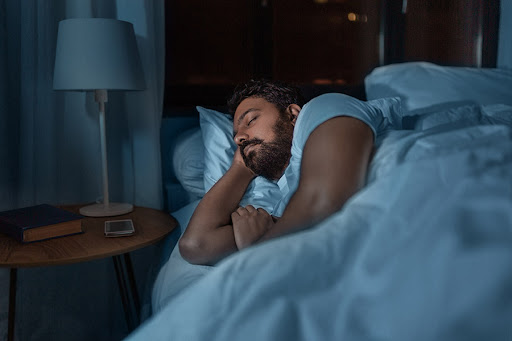Sep28

The quality of your sleep is one of the most important factors for your health and well-being. Quality sleep can help you feel more energized during the day, improve your mood and motivation, keep your body healthy, and even help you lose weight!
It’s possible to improve your ability to fall asleep in just a few simple steps. The tips below will show how easy it can be to get better quality sleep at night so that you wake up feeling refreshed instead of groggy.
Remove clutter from your bedroom. Clutter can be a major source of distraction, especially when you're trying to fall asleep. Make sure that there are no clothes on the floor, toys or books scattered around, and that all surfaces are clear of items like chargers and remotes.
Clean regularly and thoroughly. Your bedroom should be kept clean at all times--but especially before bedtime! You'll sleep better if there's no dust or dirt in it, as well as no smells from cooking or pets who might have been sleeping on the bed recently.
If you're like most people, you probably hit the snooze button several times in the morning. Snoozing is a bad idea for a number of reasons:
You're only getting an extra seven minutes of sleep. You may think this is enough time, but it's not--you need much more than that to feel rested and energized. In fact, studies show that even just four or five extra minutes can make all the difference in how well rested you feel when it comes time to get up again.
You'll be more likely to feel tired later in the day because your body hasn't had enough restorative sleep (the kind where we dream).
It makes waking up harder each time by making your brain think it's still nighttime--so unless there's something really important going on at work or school that day (like an exam), try not using those snooze buttons!
Avoid heavy meals and drinks in the hours before sleep. If you're hungry, have a light snack instead of dinner (a few crackers or a piece of fruit).
Keep your bedroom cool and dark when going to sleep so that it's easier for you to fall asleep quickly. Be sure your room is dark and quiet
Your bedroom should be as dark as possible. This will help your body produce melatonin, a hormone that helps you sleep.
Darkness also reduces the amount of light that enters your eyes and prevents the brain from recognizing patterns, which can make you feel alert instead of sleepy. If you're having trouble falling asleep because of noise or lights coming in through windows, try using blackout curtains or an eye mask to block out any unwanted stimuli.
Taking the time to find the best value mattress is critical to quality sleep. For starters, it needs to be comfortable--not too hard or soft. But there are other factors that determine how well you'll rest at night:
The size and weight of your body (and whether you share your bed with someone else) will determine what type of mattress works best for you. If you're big and tall, for example, then an extra-firm model may provide more support than other types do.
Memory foam mattresses conform closely to your body's shape while still providing some bounce back when pressure is applied--they're great for side-sleepers who need extra support from their hips and shoulders but also like the feeling of sinking into their beds at night. Some memory foam models even come with cooling gel inside them so they don't get too hot during use!
Turn the volume down on your phone. If you're like most people, you probably use your phone as an alarm clock, and it's tempting to leave it next to your bed so that it can wake you up in the morning. But all those notifications are a distraction before bedtime--and they could even be keeping you awake at night! Try putting the phone on silent or turning off its ringer altogether.
Make sure that any other electronic devices are far away from where you sleep. Even if they aren't making noise directly near your ears, electromagnetic fields produced by laptops, tablets and other devices may interfere with how well rested and relaxed we feel during REM sleep--which is when our bodies and minds recover from stressors like work or schoolwork during the day.
Sleep is important for your health, productivity, creativity, emotional wellbeing and relationships. It's also crucial to mental wellbeing and stress management.
If you're having trouble sleeping at night or feeling tired during the day--or if you simply want to improve the quality of your sleep--it's time to take action!
Keywords: Health and Wellness
 Coherence Before Complexity
Coherence Before Complexity The Corix Partners Friday Reading List - February 20, 2026
The Corix Partners Friday Reading List - February 20, 2026 The retail playbook that worked for 30 years? It's not broken. It's just finished.
The retail playbook that worked for 30 years? It's not broken. It's just finished. Testing Suez: Economics Are Driving Carriers Back Into the Red Sea
Testing Suez: Economics Are Driving Carriers Back Into the Red Sea Mastering Social Media in 2026: Optimizing Networking and Advocacy for the Digital Age
Mastering Social Media in 2026: Optimizing Networking and Advocacy for the Digital Age